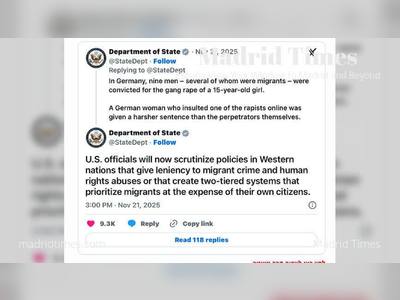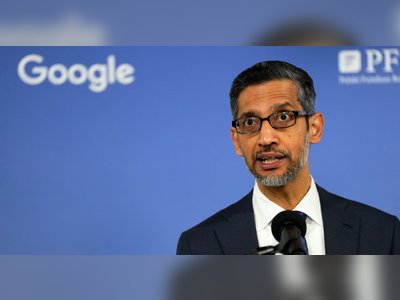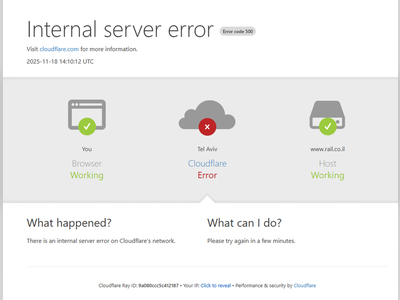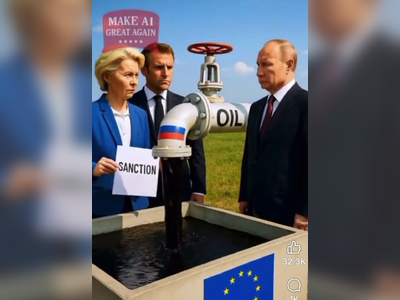U.S. Envoys Deliver Ultimatum to Ukraine: Sign Peace Deal by Thursday or Risk Losing American Support
Washington presses Kyiv to accept a twenty-eight-point draft peace framework with Russia amid mounting European alarm.
In Kyiv, a high-level delegation sent by President Donald Trump presented Ukraine with a stark ultimatum: agree to a United States-brokered peace deal with Russia by next Thursday or face a significant reduction in American support.
The draft framework, reportedly comprising twenty-eight points, was delivered during meetings on Thursday with Ukrainian President Volodymyr Zelenskyy and senior officials.
According to U.S. sources, the plan calls for Ukraine to relinquish control of key territories—such as Crimea and the Donbas—scale back its military to approximately six-hundred thousand troops, and constitutionally renounce any future membership in the North Atlantic Treaty Organization.
In return, Kyiv would receive vague security guarantees and reconstruction aid funded from frozen Russian assets.
President Zelenskyy responded with measured caution.
He described the moment as “one of the most difficult in our history,” warning that Ukraine now faces a choice between sacrificing its most important ally and sacrificing its dignity.
He reiterated that any peace must be “just” and must preserve Ukraine’s sovereignty.
European partners have expressed sharp concern that the U.S.-drafted deal sidesteps Kyiv’s role, rewards Russian aggression and may undermine the broader alliance’s long-term security.
Analysts suggest the abrupt deadline signals a shift in U.S. strategy: rather than open-ended support for Ukraine’s war effort, Washington appears to be pressing for a rapid settlement.
U.S. envoys in Kyiv were reported to assert that failure to sign by the Thursday deadline would trigger a review of U.S. military and intelligence assistance.
While the White House has not formally announced a cut-off, officials described the timeline as “aggressive” and emphasised that the framework has Trump’s backing.
Kyiv, meanwhile, announced it would continue to engage but stated it will not accept terms that betray its constitutional principles.
The deal comes as Ukraine faces severe battlefield pressure, a political scandal involving alleged embezzlement in its energy sector and growing public unease about the war’s toll.
With those domestic strains mounting, Zelenskyy’s room to manoeuvre appears constrained.
For President Trump, the proposal offers a path to bring an end to a conflict that has entered its fourth year, aligning with his “deal-maker” persona and preferred emphasis on diplomacy over prolonged military engagement.
Yet this ambition puts him at odds with European allies who warn that any peace which sacrifices Ukraine’s security will merely postpone future conflict.
As the proposed deal nears its deadline, Kyiv’s decision will carry far-reaching implications for Ukraine’s future, European unity and the broader transatlantic alliance.
The draft framework, reportedly comprising twenty-eight points, was delivered during meetings on Thursday with Ukrainian President Volodymyr Zelenskyy and senior officials.
According to U.S. sources, the plan calls for Ukraine to relinquish control of key territories—such as Crimea and the Donbas—scale back its military to approximately six-hundred thousand troops, and constitutionally renounce any future membership in the North Atlantic Treaty Organization.
In return, Kyiv would receive vague security guarantees and reconstruction aid funded from frozen Russian assets.
President Zelenskyy responded with measured caution.
He described the moment as “one of the most difficult in our history,” warning that Ukraine now faces a choice between sacrificing its most important ally and sacrificing its dignity.
He reiterated that any peace must be “just” and must preserve Ukraine’s sovereignty.
European partners have expressed sharp concern that the U.S.-drafted deal sidesteps Kyiv’s role, rewards Russian aggression and may undermine the broader alliance’s long-term security.
Analysts suggest the abrupt deadline signals a shift in U.S. strategy: rather than open-ended support for Ukraine’s war effort, Washington appears to be pressing for a rapid settlement.
U.S. envoys in Kyiv were reported to assert that failure to sign by the Thursday deadline would trigger a review of U.S. military and intelligence assistance.
While the White House has not formally announced a cut-off, officials described the timeline as “aggressive” and emphasised that the framework has Trump’s backing.
Kyiv, meanwhile, announced it would continue to engage but stated it will not accept terms that betray its constitutional principles.
The deal comes as Ukraine faces severe battlefield pressure, a political scandal involving alleged embezzlement in its energy sector and growing public unease about the war’s toll.
With those domestic strains mounting, Zelenskyy’s room to manoeuvre appears constrained.
For President Trump, the proposal offers a path to bring an end to a conflict that has entered its fourth year, aligning with his “deal-maker” persona and preferred emphasis on diplomacy over prolonged military engagement.
Yet this ambition puts him at odds with European allies who warn that any peace which sacrifices Ukraine’s security will merely postpone future conflict.
As the proposed deal nears its deadline, Kyiv’s decision will carry far-reaching implications for Ukraine’s future, European unity and the broader transatlantic alliance.
Translation:
Translated by AI
AI Disclaimer: An advanced artificial intelligence (AI) system generated the content of this page on its own. This innovative technology conducts extensive research from a variety of reliable sources, performs rigorous fact-checking and verification, cleans up and balances biased or manipulated content, and presents a minimal factual summary that is just enough yet essential for you to function as an informed and educated citizen. Please keep in mind, however, that this system is an evolving technology, and as a result, the article may contain accidental inaccuracies or errors. We urge you to help us improve our site by reporting any inaccuracies you find using the "Contact Us" link at the bottom of this page. Your helpful feedback helps us improve our system and deliver more precise content. When you find an article of interest here, please look for the full and extensive coverage of this topic in traditional news sources, as they are written by professional journalists that we try to support, not replace. We appreciate your understanding and assistance.










